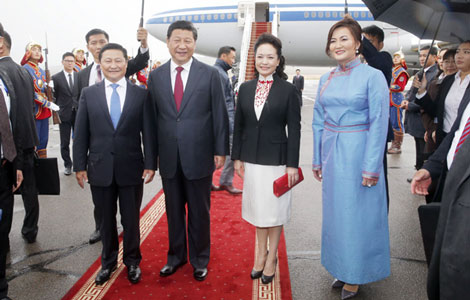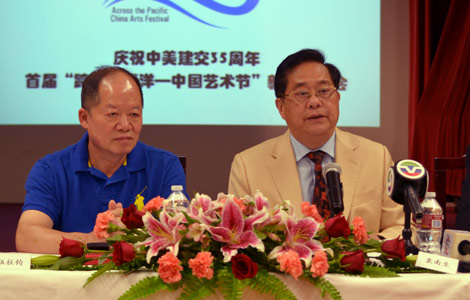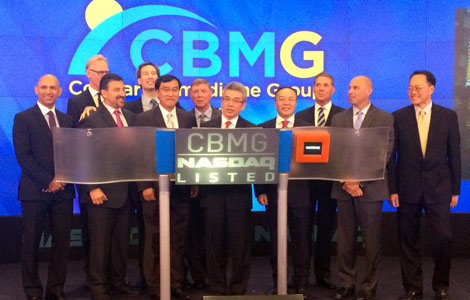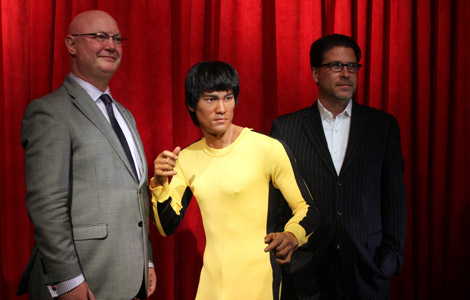Deng's legacy of 'strategic thinking' critical for current China
Updated: 2014-08-21 21:25
(Xinhua)
|
||||||||
BEIJING -- At the seminar marking late leader Deng Xiaoping's 110th birthday on Wednesday, Chinese President Xi Jinping summarized six aspects of Deng's political legacy, one of which is Deng's strategic thinking.
It is the first time the Chinese leadership mentioned strategic thinking as one of Deng's political legacies. It is not only about the wording, but closely relates to the current situation in which China needs to address various issues by embracing Deng's approach.
Deng and his comrades saved China at a critical time in the country's history, not by small repairs, but with systematic methods and visionary designs.
Deng's reform concerned almost all aspects of the country, from science and technology to ideologies, from industrial powerhouses to the most rural areas.
Deng took all aspects into the greater picture, and made breakthroughs on easier issues at the beginning. With comprehensive and strategic thinking, he led the country on its way to prosperity.
In the new century, the country has always vowed reform, but in many aspects, reforms have yet to reach people's expectations. In health, education, income distribution and many other fields, people are still making complaints.
China began a new round of reforms after the transition of Communist Party and state leadership in late 2012 and early 2013. A package of reform policies have also been announced and some have been implemented.
Like Deng's approach, the current reforms are not simple repairs of current policies.
In a key decision made at the Third Plenary Session of the 18th Central Committee of the Communist Party of China in November last year, a total of 60 missions were clearly laid out. Simple and separate reforms cannot succeed as almost all state issues are interconnected.
At the plenum, the central leadership vowed to strengthen independence of local governments from China's judicial system. Reform of the administrative system will cut governments' power, empowering the market instead. In addition, many changes will be directed toward State-owned Enterprises.
All the reforms involve various departments, levels of governments and interests groups, which require the central authorities to view them in the bigger picture and the political courage to implement.
In this sense, Xi's mentioning of strategic thinking has its practical significance. Xi has in several occasions stressed the importance of top-level design, which was in essence follows Deng's forward-looking strategic thinking.
Reform is never an easy task, especially in a country as big and complicated as China. Reviewing Deng's legacy gives the current Chinese leadership a wise methodology and experience to carry on reform tasks.
Although the situations are different, the essence of Deng's statesmanship will always serve as a lighthouse for which progress can follow.

 Chinese president arrives in Mongolia for state visit
Chinese president arrives in Mongolia for state visit
 Biggest ever
Biggest ever
 China Art Festival to kick off in San Francisco
China Art Festival to kick off in San Francisco
 Who's causing California's real estate bubble?
Who's causing California's real estate bubble?
 China using more natural gas
China using more natural gas
 Peking Opera artist honored in NYC
Peking Opera artist honored in NYC
 Amazon to open Shanghai platform
Amazon to open Shanghai platform
 Former Microsoft CEO Steve Ballmer leaves board
Former Microsoft CEO Steve Ballmer leaves board
Most Viewed
Editor's Picks

|

|

|

|

|

|
Today's Top News
In reforms, China will never 'copy' others: Xi
Amazon's Shanghai FTZ platform to tap China for growth
US military mulls more troops to Iraq
Japan's view of history still rankles
Chinese, US attitudes on dementia vary
Young netted in drug abuse blitz
Obama vows long-term strategy against ISIL
Ministry says trade growth needs help to reach 7.5%
US Weekly

|

|







